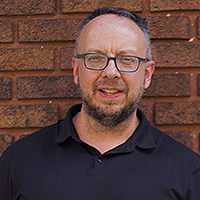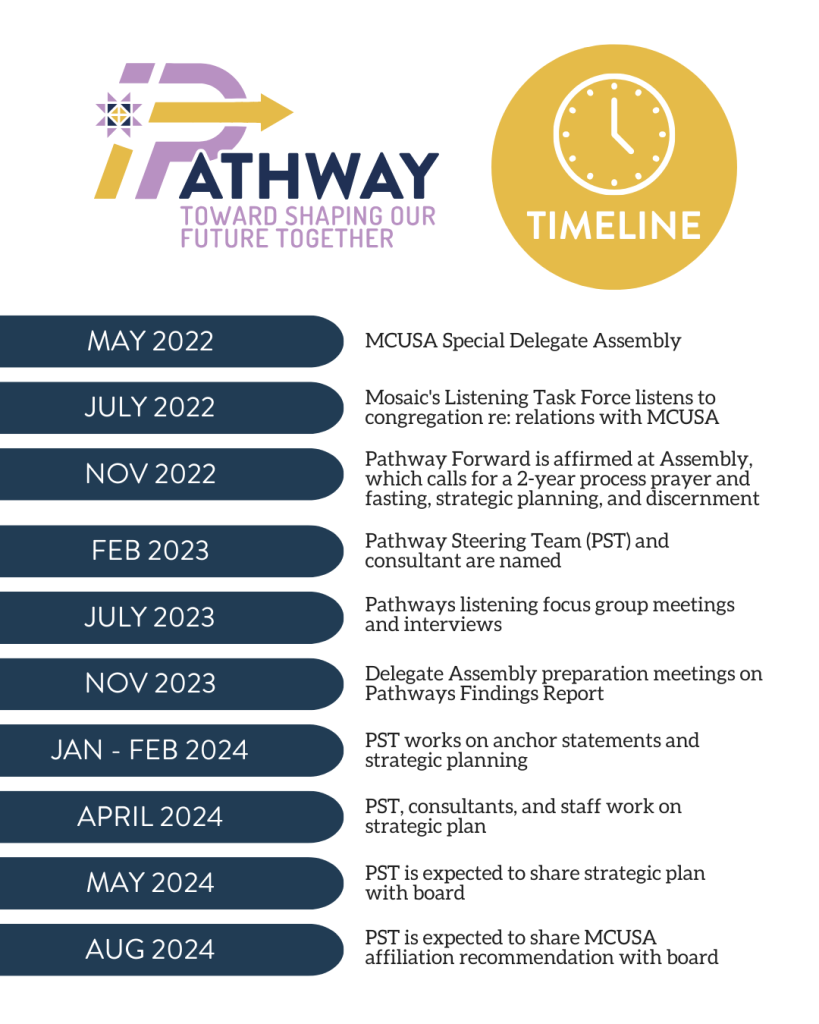by Stephen Kriss
My last vote as a Franconia Conference delegate was to reconcile with Eastern District Conference in 2019. After years of process and negotiation, a 150-year-old schism was reconciled. It was joyous and hopeful. There were tears and senses of finally. It was the fruit of long processes, listening, and laboring. It included a carefully constructed formation document that was designed to bring as many of us between the two conferences into relationship as seemed possible at the time. While this was happening in fall 2019, we expected those in Southeast Conference that wanted to remain in fellowship with Mennonite Church USA (MC USA) to join us in fall 2020.
No one could have predicted that our Eastern District/Franconia Conference reconciliation process would be impaled by a pandemic and months of social unrest, including protests related to George Floyd’s murder and an uprising at the U.S. Capitol during a presidential transition. Our increased social isolation and polarization came to the surface as anger and frustration. While many U.S. cities were experiencing protest, we took on the new hopeful name Mosaic. We believed that a new identity was necessary to move forward and find our way together.
There were already some challenging points in our formation document. The question of affiliation with MC USA was raised, but as both Eastern District and Franconia were members, the team deferred it. There was conversation about switching our basic belief document from the Confession of Faith in a Mennonite Perspective from 1995 to the Seven Core Convictions of Mennonite World Conference. At the time, that would have put us outside the boundaries MC USA had formed. And there were already tensions around the inclusion of queer people, with some of us needing the Grace and Truth and Going to the Margins statements, and others seeing this as a time for revision. We took the most conservative route and held onto all the documents and positions already in play, deciding that a new organizational system didn’t need that challenge yet.
After our historic, joyous vote to reconcile, we had two online annual assemblies due to Covid concerns. We didn’t meet face-to-face again until after a special delegate session of MC USA in summer 2022. Some of us came to the 2022 Mosaic assembly with heated concerns about its process and outcome, particularly related to the passing of the Repentance and Transformation Resolution. There was a mosaic of opinions and responses, with rumors of schism already. In response to issues around human sexuality, Mosaic lost five member congregations and delegates allowed an opt-out of MC USA, which another seven congregations took. We focused on hesed, extending loving-kindness. We tackled a two-year process of Pathways to help us find our way together.
In teaching about Anabaptism, I’ve come to love Walter Klassen’s work Anabaptism: Neither Catholic nor Protestant. His later addition would be that we are “both/and.” We have much in common with the Protestant movement and its fracturing ways. We have much in common with the orders of Catholicism in their orientations to distinct practices. As someone shaped by Catholic background and education along with Mennonite education and practices, I’ve tried to find a way for us to live in the in-between of this reality. Martin Buber, a Jewish philosopher/theologian, calls it the “narrow ridge.”
The narrow ridge is precarious. Finding a pathway that is solid enough for us all to move ahead together while admitting the precarious and difficult terrain takes wisdom, willingness, and work. Moving forward with a recommendation as bold and complicated as a redefined relationship with our denomination will require elements of hesed, and another word that we used to know well from German, gelassenheit or yieldedness.
The Pathways Team’s recommendation will require something of us. It is easy to define relationships as “in/out” or “right/wrong.” Sometimes relationships change because of organic growth. And for many of us, change is difficult.
The recommended shift to partnership rather than membership gives Mosaic the space that we need to navigate the narrow ridge. We will need to commit to working in ways that are collaborative more than hierarchal, local/global rather than national/colonial, and relational rather than institutional. This creates space for growth and allows us space to further discern our identity as Mosaic Mennonites in a world that desperately needs the reconciling love of Jesus.
Of course there is irony in all of this. And pain. And all kinds of emotions. I trust the work of the Spirit to use this moment regardless of the outcomes. Through our history, we have been entrusted with a peaceable and often fracturing way of following Jesus. We are like the world around us, both broken and beautiful. We are full of hope and possibility and desperately in need of mercy and grace.
Author’s Note: Our conference communities have been in flux of relationships for years.
- Franconia Conference joined the General Assembly of the Mennonite Church in the early 1970s. Before that it operated autonomously in collaboration with other conferences (though rarely until recently with Eastern District).
- Eastern District joined a group of mostly Midwest congregations to form the General Conference Mennonite Church after the split from Franconia in 1847.
- Southeast Conference formed from the amalgamation of congregations from a variety of Conferences in Florida and Georgia in 1967 which then broke apart as it joined LMC following a 2018 vote. Several congregations from California joined Franconia/Mosaic over the last decade after exiting Pacific Southwest Mennonite Conference.


Stephen Kriss
Stephen Kriss is the Executive Minister of Mosaic Conference.





